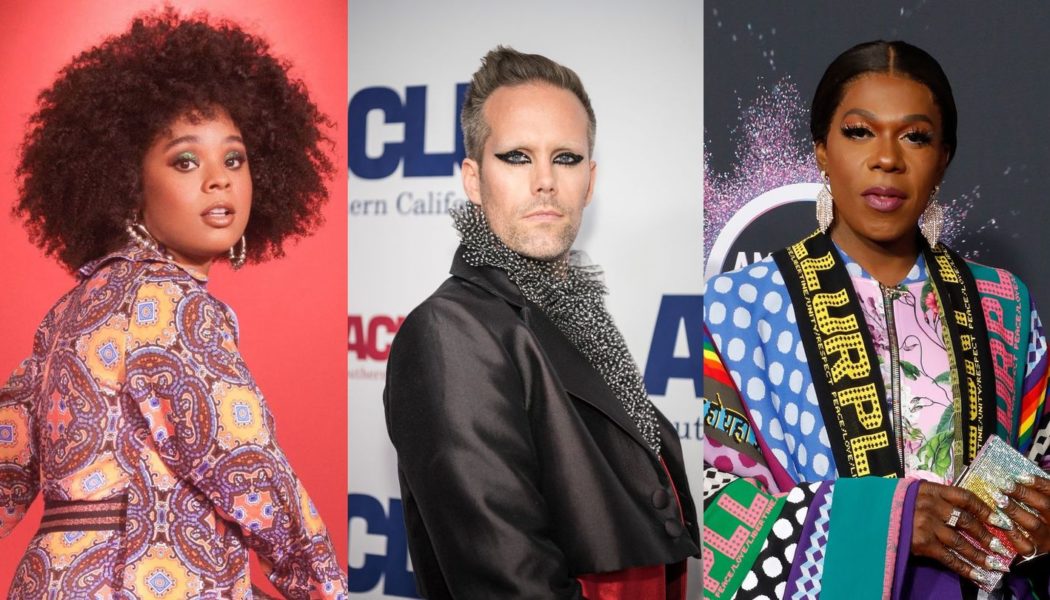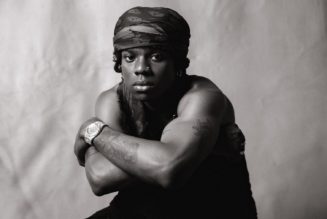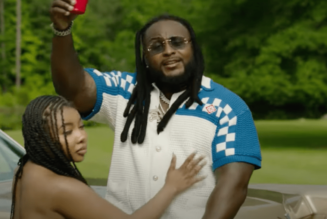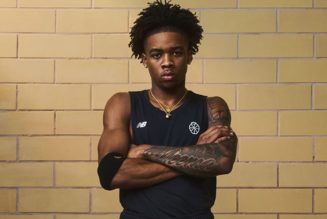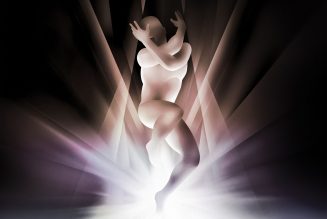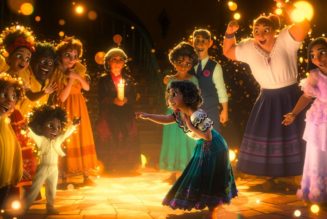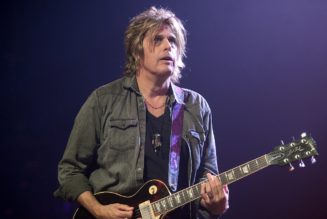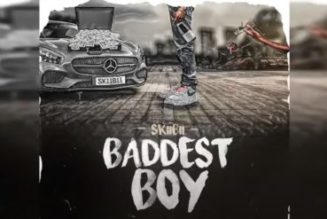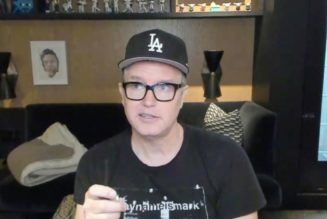
By Rob LeDonne
On its surface, Big Freedia’s “Chasing Rainbows” sounds like any other pop anthem. With a hummable melody, sparkling production, and earworm chorus featuring fellow star Kesha, the track has the ability to explode out of speakers on musicality alone. But zero in on the confection’s personal lyrics and you’ll discover they center on topics of sexuality, equality, and spirituality. The song is a deep rumination and vulnerable insight into the singer’s world and personality.
“It’s really about growing up as a gay boy and some of the things I had to face,” Big Freedia tells MTV News of the track, which was featured on her 2020 EP Louder. “It’s me being myself and being loud and proud. It’s my story for people to relate and connect with; chasing your dreams and chasing your rainbow, whatever color that may be, whatever journey that may be.”
“Where I’ve been, what I’ve seen, people dyin’, they can’t be who they be ’cause they’re hidin’” Freedia sings. “You know me, bein’ free, won’t be silent. I pray for my enemies.” “Chasing Rainbows” is a call to action; an autobiographical anthem in which she tells the listener exactly who she is and where she’s from. “It’s about giving people a moment of hope, no matter what your background is,” she says. “So I had moments where I cried as I was writing it and moments where I cried as I was performing it. It was very therapeutic to let out some of the things that had been bottled up for so long.”
Freedia is carrying on a tradition of distinct queer truth in music, a cathartic sonic release that has been intertwined with the LGBTQ+ community long before the very acronym came into vogue. They’re queer anthems; announcements on a personal, yet relatable level, meant to encapsulate either the hopes, fears, love, loss, complications, or joys of a long-marginalized community. They’re dance bangers or ballads, songs that make you think or cry. It’s music where a microphone can lead the way to raw expression, but it can also be a life preserver for someone who might not otherwise see themselves represented.
When it comes to the latter effect, the veteran songwriter Justin Tranter remembers exactly what track affected him when he was coming into his own sexuality. “‘Swan Dive’ by Ani DiFranco has impacted me the most,” they explain of the 1998 song about which features raw, personal lyrics that Tranter first heard while growing up in suburban Chicago. “I was still a teenager. The lyrics, ‘I built my own empire out of car tires and chicken wire, I’m the queen of my own compost heap and I’m getting used to the smell,’ kind of set me off on my journey of being queer and femme as fuck but having the strength to take shit over.” Having written pop smashes for everyone from Lady Gaga to Halsey, Tranter has learned a few key tricks to crafting a solid Pride anthem along the way. “Speak your truth, embrace the power of the magical underdog, and sing your face off.”
Music written by and for LGBTQ+ people has always existed, even if allusions to queerness had to be slyly snuck in. In the 1930s, Cole Porter, a gay writer from the Great American Songbook era of standards, concocted peppy tunes that covertly referenced his sexuality. Deeply closeted, his hit song “You’re the Top,” a proclamation of utter love from the musical Anything Goes, has a chorus that literally croons, “Because baby if I’m the bottom, you’re the top.” Meanwhile, his song “Just One of Those Things,” recorded by Frank Sinatra in 1953, is a nod to the then-clandestine nature of gay hookups. Perhaps it was no coincidence that following the Stonewall uprisings of 1969, a series of clashes between police and patrons of a Manhattan bar that lit the spark of gay liberation, a more overt Pride anthem emerged. The 1978 dance hit “Y.M.C.A.” with its hokey choreography, alludes to the men’s center’s penchant for being a cruising spot.
Simultaneously, the LGBTQ+ community began rallying around otherwise straight stars who subsequently became heroes of the marginalized. In the ’60s, a passion for Judy Garland emerged, no doubt thanks to her struggles, passion, and camp. By the ’70s, artists like Donna Summer, Cher, and Barbra Streisand became treasured icons of queer listeners, while the ’80s brought artists like Madonna and Whitney Houston. While many of these were adopted by LGBTQ+ fans organically, some anthems have been written with this audience in mind: By 1982, the Weather Girls’s novelty hit “It’s Raining Men,” co-written by the straight writer Paul Shaffer, catered specifically to the gay community.
Speak your truth, embrace the power of the magical underdog, and sing your face off.
Today, overt Pride anthems touching on specifically queer experiences have successfully become mainstream, from Lady Gaga’s “Born This Way” in 2011 to the bulk of the Australian pop star Troye Sivan’s catalog. Lil Nas X’s “Montero (Call Me By Your Name),” a uniquely Gen Z take on queerness in which the artist faces his sexuality and critics head on, having a blast on a trip to hell itself along the way. The song rocketed to No. 1 on the Billboard charts. “It’s a beautiful thing to see,” explains Tayla Parx. A songwriting force who has co-written ubiquitous hits for the likes of Ariana Grande and Dua Lipa, Parx, who is bisexual, points out that an artist like Lil Nas X writing blatantly about queer Black love, could have never gone to No. 1 even 10 years ago. “It just wasn’t something that was mainstream, quote-unquote, or that people were willing to talk about. People were marginalized. Looking back, we’re going to realize a shift in culture happened around this time. The fact is, my generation is very fluid with both genre and gender.”
It’s that fluidity that also defines the musicality of what a queer anthem sounds like. While the ’70s and ’80s eras of the music queer people gravitated to ranged from dance smashes or ballads, today the music that reaches out to the LGBTQ+ community range from the subtle indie-pop of the Troye Sivan album Blue Neighbourhood, to the modern country twang of Kacey Musgraves and a song like “Follow Your Arrow.”
As a powerful creative force behind the scenes, Parx has done her own part to impact change. “About six or seven years ago, I decided to say, “I’m not going to say ‘him’ or ‘her’ on a record. I just wanted to throw that idea out,” she explains, first applying the concept to her solo work. “I applied to other mainstream artists if using ‘him’ or ‘her’ is not necessary or adds to the song.” It was a radical idea at the time and one that has only presciently aged. “A lot of times, people forget that a song is one of the most scary places they can be vulnerable,” she explains, pointing to her own same-gender love song, “Act Right.” “You might hear it over and over again for the rest of your life. Now we’re seeing so many more artists just be open and as real as they can be. They’re taking us on their journeys with them, and that’s what makes great music.”
Tranter, meanwhile, was deeply moved and influenced by a YouTube video of the artist Shea Diamond. “She was singing ‘I Am Her’ acapella at a gathering for trans lives and my heart stopped,” they explain. “It was lyrical rawness and perfection all at the same time, along with a voice that kills. I’d never heard a musician speak to the Black trans experience so specifically and I was completely moved.” For Tranter, one of the most important parts of his views on Pride anthems is a seemingly simple idea. “Be queer. We’ve had enough straight people telling our stories for us,” they explain. “It’s time to celebrate queer musicians who are making queer anthems. Lil Nas X for President. Sam Smith for V.P. Shea Diamond for Secretary of State. Jake Wesley Rogers for Speaker of the House.” Speaking to Tranter’s point, in celebration of Lady Gaga’s tenth anniversary of Born This Way, the seminal album from the bisexual star, she recruited a host of LGBTQ+ artists to reimagine its tracks, whether Orville Peck’s “Born This Way (The Country Road Version)” or Big Freedia’s spin on “Judas.”
Freedia, meanwhile, who does her fair share of advocacy (including being the face of the new Planned Parenthood campaign “Be Seen”) encapsulates it all succinctly. “I think these Pride anthems are important because they support the LGBTQ+ community by giving us these moments of hope, happiness, and joy,” she explains. “These are songs strictly for us. It gives us a moment where we can say, ‘Damn, that represents us.’”
This year, express your self-care and celebrate Pride mindfully. Visit www.MentalHealthIsHealth.us/PRIDE.
